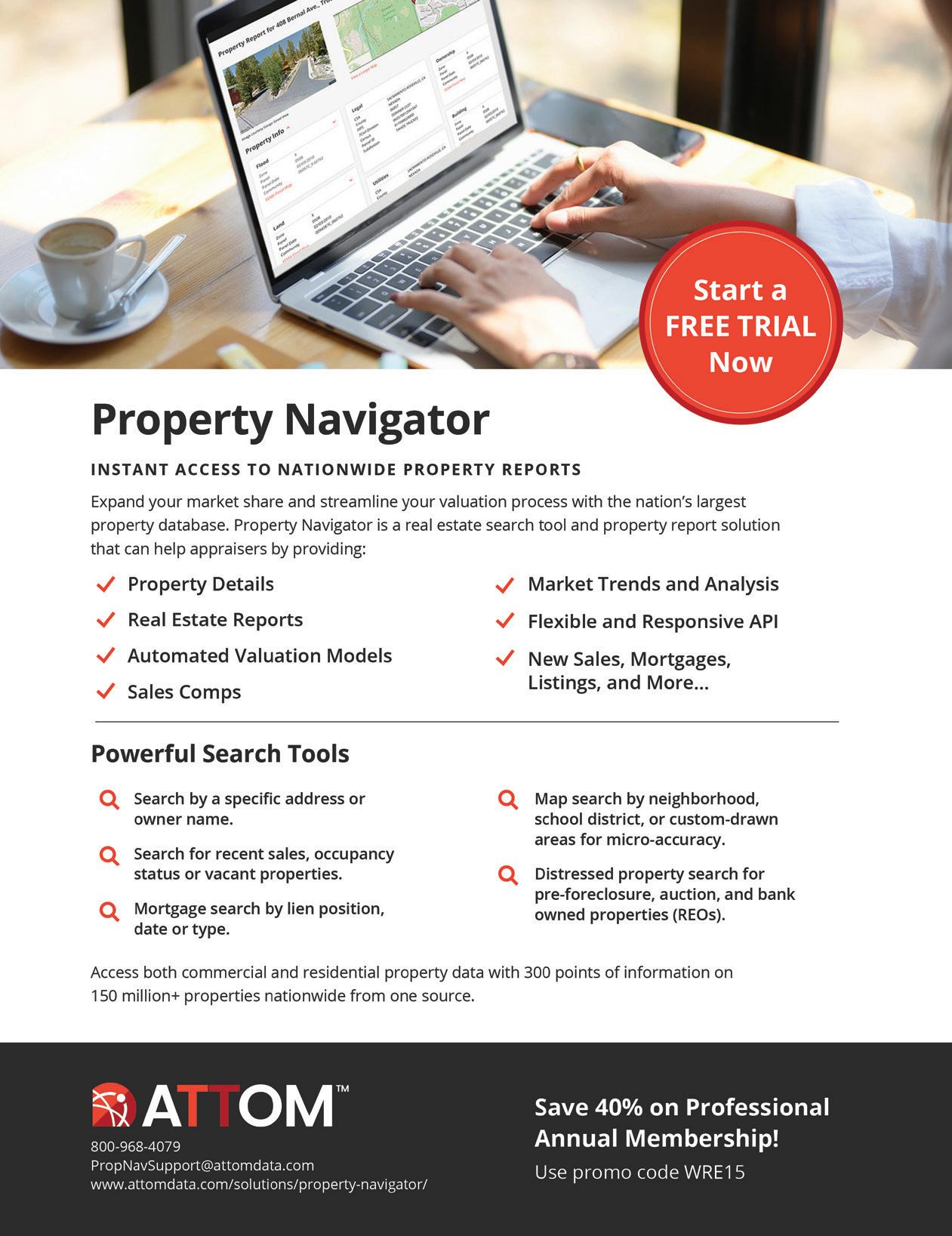
2 minute read
Doing What Others Won’t Do
by Isaac Peck, Publisher
I ’ve been traveling a lot—supporting grassroots appraiser organizations like the South Carolina Professional Appraisers Coalition, meeting bootson-the-ground appraisers, and trying to help appraisers stay out of trouble by teaching on appraiser liability and risk management.
Advertisement
Being on the road (for me) is always hard, but it’s been a special privilege to spend time with appraisers across the country, break bread, and talk about the issues they’re facing in today’s market.
I’ve been touched by the stories I’ve heard along the way. Stories like Paul Ryll’s, a former United States Marine who, in the face of today’s market challenges, just launched a second appraisal firm (Reynolds and Ryll, LLC) focusing on commercial valuations, valuations for tax and government purposes, and consulting.
Stories like Byron Miller’s, a residential appraiser who saw a need for legislation that protects and supports appraisers in his home state of Minnesota, and subsequently led a small group of appraisers to get six (yes SIX) laws passed in his state legislature over the last eight years (See Grassroots Lobbying 101: How Appraisers Can Effect Change , pg. 14.)
Or Kathy Walsh, who went back to school in her 50s, became a Certified appraiser, and has built a very successful woman-owned and operated multi-appraiser firm in Sammamish, Washington—where she’s been able to train other women and bring them into the profession as well. (See Women in the Appraisal Industry: Interview with
One of the things I’ve been reflecting on—the common thread in these stories and something I’ve seen surface repeatedly in my own journey—is that the individuals who succeed despite the odds, whether in growing their businesses or in passing essential legislation, are the ones who are willing to do what their peers (or competitors) won’t do. To take those extra classes, do that extra marketing, train and invest in others, or, like in Miller’s case, to call on his state representatives, meet them in their offices, and attend hearings at his state Capitol.
We try to take the same approach here at Working RE magazine and OREP Insurance—to be willing to do what our competitors will not do. For me, that means traveling to 25 to 30 cities this year, sponsoring smaller appraiser associations, speaking with appraisers across the country and telling their stories, adding new benefits to support OREP’s Members (like our new Limiting Liability Disclaimers eBook, see pg. 5), and personally calling our insureds and answering their questions—making it clear that our commitment to outstanding service is not just a tagline.
I’m not sure what this looks like in your business—whether it’s developing new skills, branching out into commercial or non-lender work, getting a professional designation, giving your clients quick turn-times and excellent customer service, providing higher-quality reports, or building your network with attorneys or real estate professionals.
But from one small business owner to another, I encourage you to go that extra mile. The appraisal profession is definitely facing its share of challenges, but there are still opportunities for us to grow.
I hope this issue keeps you informed and gives you some ideas and practical actions that can help your business. If you ever need assistance with your appraiser E&O insurance, please visit us at OREP.org (it takes less than five minutes to get a quote online!).
Lastly, if there’s anything I can do personally to be of service, please reach out to me at isaac@orep.org. To your success! WRE










